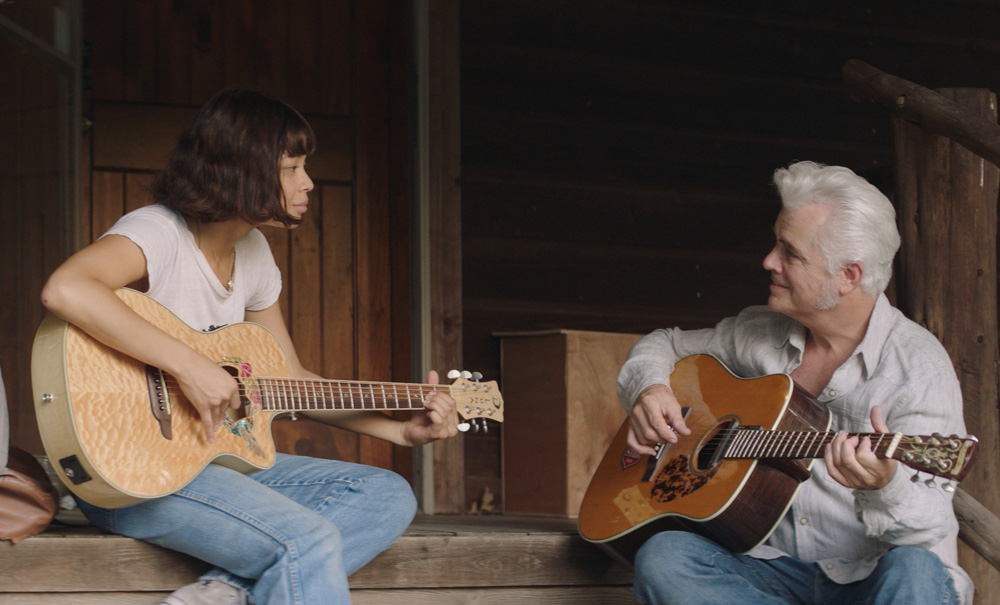For those who have lived in Austin, the Broken Spoke has long been regarded as a safe haven where the beer flows as freely as the music and you look sillier if you don’t get up and dance than if you do, but in “Yellow Rose,” that notion is taken one step further when it becomes the makeshift home for Rose (Eva Noblezada), an aspiring singer/songwriter who has no other place to go when her mother Priscilla (Princess Punzalan) is apprehended by ICE. With the pair living in Texas as undocumented immigrants for the past seven years, the two had learned to live with the fear of being found out while Priscilla worked at a roadside motel, but living without each other is something neither could even bear to imagine, with Rose’s interest in pursuing music, once believed by her mother to be an impossible way to make a living, now becoming the only thing that keeps her pressing on.
Over the course of 15 years, Diane Paragas was driven by a similar belief in art as she pursued making her narrative feature debut, a music-driven drama giving new meaning to how life can be like a country song, with Rose turning her sorrows into powerful ballads with the help of local legend Dale Watson, playing himself. “Yellow Rose” is authentically Texas, but for the director and co-writers Annie J. Howell and Andy Bienen, that means that the state known for its larger-than-life reputation has the room for all cultures, adding their influence and experience to maintain its fiercely independent streak that’s become such a source of pride over the years. Fashioning a unique coming-of-age story in which Rose’s desire to stand out on her own as she reaches college age as she’s heartbroken when deprived of the ability to likely ever see her mom again, Paragas shows how the kindness of strangers and creative outlet of songwriting are able to get the young woman through some very tough times.
On the eve of the film’s release in select theaters following a celebrated festival run, Paragas spoke about realizing her own dreams of having her work so warmly received, carrying a story that seems so timely now around for years and how an effort to break through to the mainstream as a Filipina artist meant bringing so many others along with her.
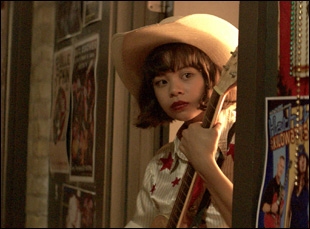
I grew up in Lubbock, Texas and when I was growing up, I was one of the only Filipinos in my high school and I used music as my outlet. When I wrote the script, which was a long time ago, I definitely wanted it to have that feeling of just being such a weirdo in this town in Texas and how I escaped that feeling through music as the core story. That was the jumping off point, but unlike Rose, I actually didn’t really listen to country music when I was in Texas. I listened to punk rock, so I was a very different character – I went the other way, but when I was conceiving this story, I thought what if this version of myself loved country music and everything about it and to me, that was far more interesting than maybe my own experiences.
I feel the punk rock spirit is still in here, and if this has been in the works for awhile, did the central story change much? The immigration story is obviously quite timely.
It’s funny. It took me so long to get the film financed that when I had the first draft, it was called INS, and they changed it to ICE now. It wasn’t even the same name for the institution. But the immigration story was always in the script [where] the mother was getting arrested and that says a lot about the systemic issues that have always been there about immigration. But I definitely pivoted more into that storyline after the current presidency and we went into more the story of what it would be like when a mother and daughter are separated. I followed the mother a little bit more in this version than I had in other versions of the script [where] the journey was more about Rose finding a home and eventually finding her place in music and in this country.
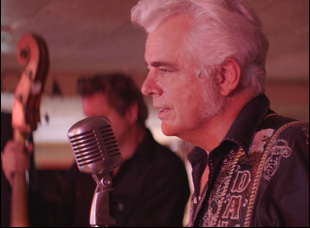
It was my intention from the beginning to cast real musicians, especially the part that Dale plays — in the script, his name is Jimmy Redburn, but he was written exactly how Dale is in real life and we had just such a low budget I wanted to show his bus, I’m like, we don’t have the budget to repaint it, so why don’t we just make Dale Watson, Dale Watson, and he’s like, “Alright!” [laughs] Of course, I shifted a lot of [the character] based on when I met him, but it started as this meta thing of him playing himself and it just became that. He’s the spiritual center of the music — the music that we did write, I wrote part of it, some of the actors did and Dale, of course, was the chief musician in all of it, but I think my role was more trying to figure out what it would sound like from this character.
Because I play music myself, it was just such a great thing to be able to rediscover this part of me that I hadn’t delved into as much, but it’s brought music back into my life and into my filmmaking. My next film is a music film set in World War II in the Phillippines, so I think I’ve really embraced this music as part of who I am as a filmmaker, and it’s certainly integral in this story as where we learn about Rose. The interior moments in the film for her are through her songs and if the movie was just about immigration, it would be so one tone and depressing at that, but the fact that the character herself goes to music as a kind of oasis allows the audience to take a breath from this horrible situation and experience this music with her, so what I hope works in the film is to go back and forth between this oppressive situation that she’s in and this beautiful music that she creates out of it.
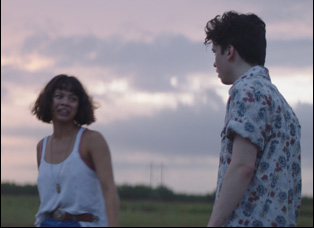
It is. I always knew that the success of this film would be on the strength of having somebody who could play this part. It’s the title character, she’s in every scene. You have to buy that she’s somebody who everybody wants to help. [laughs] And also that this is a real talent and she’s all of those things, so I was very, very lucky that we got her. She is the soul of the movie and Eva came through with blazing colors. Now, I can’t imagine anyone but her playing that role but her.
I like you saying that she’s someone everybody would want to help because I suspect you’re cut from the same cloth, corralling all these great Austin locations like the Broken Spoke. What was it like having the run of the town?
You know what? That was the cred we got from Dale Watson, and for anybody that knows Austin, he’s like the musical mayor. Because of him, we got entree into the Broken Spoke and C-Boys, which is another honkytonk that we shot in. We shot in his home. That is his recording studio in his house and that’s where we recorded the music, so so much of the authenticity and the real character of Austin is because we had this mayor of Austin as part of our film, so doors opened up to us because Dale was involved. I’m forever grateful to him for that, and he’s also a producer on the film.
You actually shoot in the Philippines as well. Was it difficult when the majority of the shoot in Austin?
It was. We shot that scene many, many months later and we actually had to raise money for it because we had spent all the money at that point, but I knew I needed that to show the vast separation between these two characters. Having the independent film spirit that we had, I was going to visit my brother in the Philippines and we just made it happen during that time. We brought Princess over and just did it as this added scene that we added actually after we already had the first cut done.
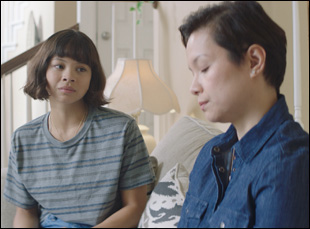
She does sing! She does sing [the lullaby] “Dahil Sa Lyo.” It was funny because she doesn’t sing the full-on thing, but we definitely put that scene in there because of that reason, like we cannot have Lea Salonga in this film and not have her sing, so we gave her one moment and she sings a-cappella beautifully. By the way, that song is on the soundtrack and Lea Salonga is one of the great living voices of our time. She has an incredible voice. She’s a Tony winner, a Broadway legend and a Disney legend – she played Mulan, she played Jasmine, and happens to be, for me, the only Filipina I ever saw or knew of growing up in this country who was in entertainment, so it was really important to me that she be in this film. I was attempting to do something that was very ambitious, wanting to make a movie that would hopefully break through and it did – a Hollywood studio is distributing it now, and if it were to be that milestone that I was hoping it would be, we had to have Lea in there.
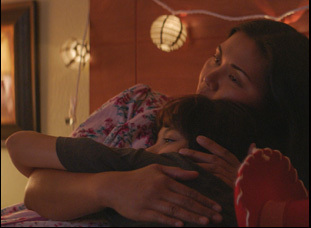
Now, I’m just so nostalgic for all of that. Our opening night was the opening night for L.A. Asian Pacific Film Festival and we played to an auditorium in L.A., so all of Filipino Hollywood came out and a lot of the press came out, and I’m so glad, because we’re premiering the film virtually, that we had that experience. It was a magical run. We won most of the festivals we were in, we won the Grand Jury Prize or the audience award or sometimes both, so it was something I could see that audiences no matter who they were were embracing and that was really important to me. To have this film that I made, seeing people cry or people sing along and react to this film together, that experience is something that was really important to me.
“Yellow Rose” opens on October 9th in select theaters.




